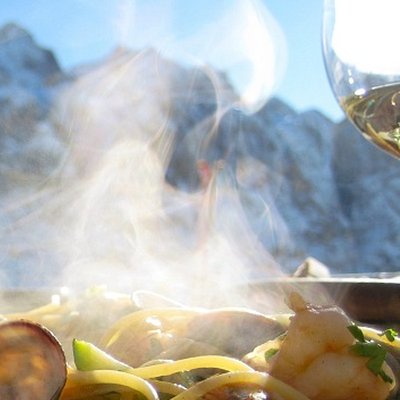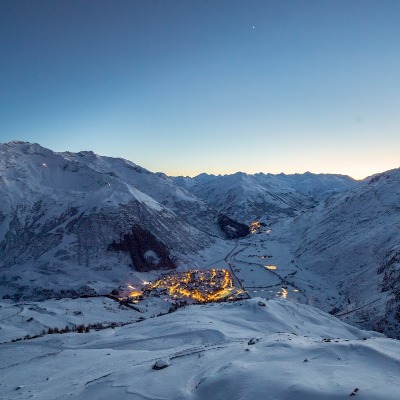KlimaNEUtral Salzburg: Climate Protection For Wintry Winters And Winter Sports In The Future

A few days before the state elections, the non-partisan platform klimaNEUtral Salzburg again called on all parties campaigning for a climate protection course compatible with the 1.5°C target, because Salzburg's current course contributes to warmer winters with less snow in the global context, which also threaten winter sports.
ÖSV racer Julian Schütter is concerned about the future of his sport: “The young skiers in particular are finding suitable training and competition opportunities later and later in the winter and only further away from where they live. That endangers ski racing.”
Studies by GeoSphere Austria show how much the current climate change is already having an impact on the snow conditions in Salzburg this winter and how much the future climatological development is dependent on man-made greenhouse gas emissions: "Ski areas at low altitudes are often already abandoned, and those in middle Sites endangered by shorter winters. Depending on emission scenarios, the higher-lying ski areas, including the glacier ski areas such as the Kitzsteinhorn, could be even more dependent on artificial snowmaking by the end of the century than they have been up to now.”
Protect Our Winters Managing Director Moritz Nachtschatt sees a great commitment to climate protection by many companies in tourism and sporting goods manufacturers, but makes it clear: "But they need reliable framework conditions from politicians in order to be able to invest in climate protection in the long term and without snow, much of this is at risk."
In 2021, the state of Salzburg decided on a "Climate+Energy 2030 master plan" to achieve climate neutrality in 2050. “This master plan misses the goal of climate neutrality in 2040 and is therefore in contradiction with the Austrian commitment to climate neutrality in 2040. In view of the results of the latest IPCC report, which again suggests a maximum global warming of 1.5°C above pre-industrial values, Salzburg urgently needs to improve," emphasizes klimaNEUtral Salzburg spokesman Erwin Mayer. "All campaigning parties in Salzburg are called upon to act ambitiously in order to enable a 10% reduction in emissions and around 0.5-1 TWh expansion of renewable energy per year by 2030," calculates Mayer.
If combustion engines with expensive and inefficient e-fuels and a high proportion of private transport were used, as was the case at the Chancellor's car summit, the necessary speed of expansion would increase accordingly.
"More than 100% of Salzburg's energy consumption should be generated from renewable sources in Salzburg and used efficiently, without e-fuels in road traffic. This is the only way to ensure a long-term, secure and affordable energy supply for all Salzburg residents. This is how we protect our winters and act in the interests of the citizens,” concludes Mayer.
Julian Schütter: "Melting glaciers and a lack of snow: due to the climate crisis, there are fewer and fewer training slopes available for junior ski teams. It is not climate protection measures, but the crisis that restricts us from pursuing our passion. If we don't manage to limit global warming to 1.5° if possible, this sport will not exist much longer."
Claudia Riedl, GeoSphere Salzburg: “Winter is getting shorter! Winter 2022/23 had very little snow, just like winter 2021/22. In the future, the number of days with snow cover will decrease significantly up to medium altitudes. There are also limits to the possibility of snowmaking, especially at low altitudes, due to progressive warming. Ski resort operation is still possible until 2050, at 1800/2000m without any significant change compared to today. At altitudes below 1300 m, on the other hand, the technical effort will increase significantly, especially with regard to making use of snowmaking times in early winter.”
www.climateneutral2040.at













